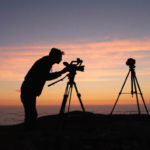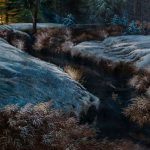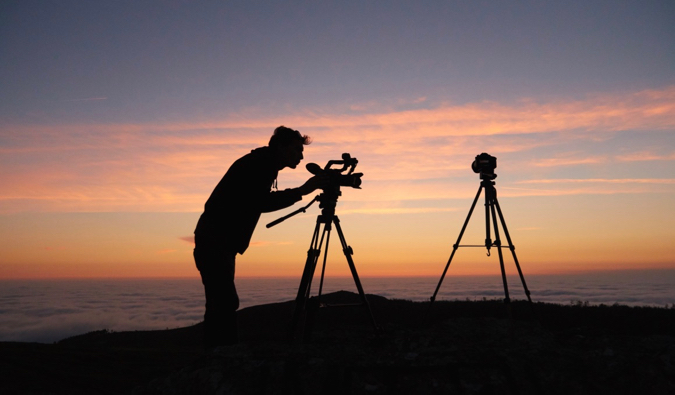FACULTY OF ARTS & WORLD CULTURE
Master in Photography and Design
MASTER’S DEGREE IN PHOTOGRAPHY AND DESIGN
Start date : September
ECTS Credits: 60
Language
English: High level of English, IELTS
Qualification
Master’s Degree in Photography and Design, degree awarded by Pompeu Fabra University (UPF) and Elisava School of Design and Engineering of Barcelona.
Schedule
English Edition.
Direction
MA in Contemporary Art Theory from London School, United Kingdom, and graduate in Photography from UCCA in the United Kingdom. Editor of the academic journal World Scientists/Photography.
Airm :
The offer of entry onto a Master’s Degree (MA) is based on an expectation that you have the potential to fulfil the aims of the course of study and achieve the standard required to successfully complete the award. Applicants are normally expected to possess an BA degree in fine arts, applied arts or design, or have equivalent experience. All candidates must submit a portfolio with their application, which should normally consist of 10-20 images that represent their area of interest.
Presentation
The Master in Photography and Design
of TFSU begins with the current context of contemporary photography characteri- zed by intense competition, the constant and unpredictable development of both photographic technology and its use, and the growing importance of photography
The Master in Photography and Design
Of TFSU is a postgraduate programme based on photographic practice, which approaches photography as an open discipline through which the student is encouraged to create extensive photo- graphic projects of high complexity while exploring the most contemporary approa- ches to photography.
The course attracts students from all over the world and emphasizes innova- tion, experimentation and theoretical and practical research. It also and motivates students to actively engage with con- temporary photographic practice through publications, exhibitions and participation in real photographic projects.
The course offers a dynamic and exciting environment to study the practice
of photography, providing students with advanced knowledge of practical, technical and theoretical photography, areas applied to the students’ projects. This is one of the characteristics of our Master, the teaching of photography is placed at the level of contemporary photographic practice. Special attention is also given to the dissemination of photographic work, exhibition and publication, and the Master focuses on the reasons why the meaning of an image is determined by its use
and contextualization.
Inspired by the experience of a wide range of professional photographers, visiting professors and technical advisors, the student will improve their knowledge and skills thanks to a series of photographic projects, constantly supervised, based
on practical research. At the end of the master’s degree, the student will be able to perform a contemporary photographic work that uses photography effectively to express and effectively communicate complex ideas, exploring beyond the specific limits of photography in order
to produce innovative solutions for new scenarios and methods of visualization and contextualization of images.
Course aims
• Provide a flexible but structured inter- disciplinary context in which students can rigorously pursue a self-directed research project whose outcomes are embodied within the systematic production of a specific and original body of work within the field of photography.
• To encourage the development of each student’s own critical reflection as the basis for developing as independent learners capable of advancing their own skills, knowledge and professional and research practice.
• Provide students with the means for establishing and understanding the place of their own work within the context of relevant and contemporary academic and professional situations and debates.
• Provide students with professional photography technical skills
• To encourage the development of research strategies that reflect the contemporary context in theoretical discourse and creative practice and form the basis for informed speculation about future directions.
• To engage with real audiences, generating new challenging narratives about the nature of the work itself and its relation with changed modes of production, dissemination and consumption.
• To provide professionals specialising in the area of photography with multidis- ciplinary training so that they can use photography as a tool for conveying concepts and ideas.
Admission requirements:
We consider applicants who have already achieved an educational level equivalent to an undergraduate degree. You can demonstrate this educational level by:
• Undergraduate Degree or similar univer- sity qualification.
• Professional experience equivalent to an official university degree.
• High level of Spanish (for the Spanish version) and high level of English (for the English version).
Competences
On successful completion of the course students will have:
• Initiated and implemented an individual
self-directed research project using research methods, materials, techni- ques and processes appropriate to design practice.
• Demonstrated a thorough understan- ding of, and critical engagement with, the relevant practical, theoretical and professional contexts of their project and be able to situate and interpret their own work within this context.
• Demonstrated an ability to employ analysis, synthesis and evaluation to a range of external sources and to their own practice to inspire and inform the generation, development and applica- tion of original ideas.
• Demonstrated a reflective and evalua- tive approach to their own work which allows them to act independently in identifying, implementing and sustaining individual research and practice at a professional level.
• Demonstrated an ability to communica- te complex and speculative concepts, methods and proposals effectively in spoken, written and visual forms.
• Identified the potential for their work within specific professional contexts and developed appropriate commu- nication skills for engagement with this audience.
• Demonstrated an ability to use pho- tography as a tool for communicating effectively concepts and ideas.
Methodology
The course is structured in two acade- mic parts according to different teaching practices: the first part responds to the student’s needs to know, understand and apply the different photographic techni- ques and theories. From that point, in the second part, the student has to propose research, develop and solve photographic projects of high professional standards in different contexts and real situations.
The MA Photography and Design com- bines the following educational activities: lectures, seminars, theoretical-practical projects, experimental workshops, monitored work and independent work. The projects are developed in groups or individually, depending on the subject and on the competences that the student has to prove he has learnt through the learning results. For each subject, a theoretical and/or practical project must be carried out with its subsequent presentation, taking into account the premises specified in the syllabus of the subject.
Career oppotunities
This course will provide students with
an excellent opportunity to expand their photography-based art practice, extend their portfolio and develop focused con- textual projects. The MA also will prepare students for a diverse range of careers within the creative and photographic in- dustries, from commercial organisations to photojournalism and the arts. Completing the course will also enhance your em- ployability, offering you a broad range of skills form writing funding applications, to managing projects and creating personal and promotional strategies. Many of our graduates have found opportunities to work as visual artists in an international context, with others pursuing art and pho- tography-based roles in related fields such as, community arts, curation, advertising, teaching, freelancing, arts criticism and review, arts journalism, arts administra- tion, video and web site production and documentary film making. With strong links to art and design employers in Spain and abroad we support the individual ambitions of every one of our students while they are studying with us and
after graduation.
Syllabus
The Master of Arts Photography and Design at Elisava adheres to the view that visual practice is a potent research me- thod that can, and should be employed in a critical engagement with itself and with the world at large. The course is based on a number of practical units which will be reinforced with a final project with the aim of contextualising the practical and theoretical aspects of photography in re- lation to fine arts, design, culture and the media, and exploring the social, cultural and critical aspects involved in the practi- ce of photographic representation.
The course has two academic stages.
In the first part, the course will take you through an initial stage designed to build your essential visual knowledge, to gain professional photography technical skills and to develop a critical thinking about photography. This stage culminates in the production of a redefined research pro- posal for your final project. In the second part you focus on the most important part of the MA, your final project, engaging in your research process through photogra- phic practice, developing and carrying out your photography final project through a process of considering its dissemination in appropriate professional contexts.
The course seeks to promote common research standards and an understanding of intellectual integrity as the basis for study at Masters level or beyond. The cour- se embraces the wide range of methods and processes, often adapted from other specialist disciplines that are typically em- ployed within contemporary art and design. However, equally shared by all specialist disciplines in the course is an emphasis on research enquiry through visual practice
at all stages of the process from initiation through development and enquiry to inter- pretation and dissemination.
One of the distinctive features of the Master of Arts Photography and Design at Elisava is its ambition to engage with real audiences, not merely producing work wi- thin a particular atmosphere of vocational, academic study. The final project enters upon completion a subsequent phase of publication and dissemination, such public materialisation and presentation of the project can be formally as varied as the expressions are within the creative industry.
However, you will demonstrate a real understanding of the need and means
of engaging with an audience in order
to creatively employ modes of reception for the contents and formal elements of his final photography project. During the course, you will have the opportunity to engage with real audiences through diffe- rent public exhibitions and presentations, which are a key part of the MA.
MODULE 1
FUNDAMENTALS OF PHOTOGRAPHY
• Principles of photography composition • Image and visual perception
• Visual narrative
• Photographic sequence
• Narrative and text
• Photographic edition
MODULE 2 DIGITAL PHOTOGRAPHY
• Digital equipment
• Colour management
• Digital zone photometry • Building light with a flash • Editing software
• Photo-manipulation
• Advanced retouching
MODULE 3 PHOTOGRAPHY EQUIPMENT
• Image processing by area • Camera and lenses
• Extreme processing
• Printing
• Interior lighting
• Lighting and exteriors
• Lighting and the environment
MODULE 4 PHOTOGRAPHIC CONTEXT AND PROCESS
a. Visual thought
• Image and text
• Image and aesthetics
• Image and context
• Photography and culture • Photography and identity
b. Uses of photography
• Non-conventional tools and contexts • Multimedia environments
• Photographic technique as an
aesthetic resource
• Advertising and communication
c. Edition
• Editing a story
• Digital editing, tools
• Representation of space
• Multidisciplinary approach to
photography
MODULE 5 DIGITAL DESIGN
• Photography for design • Design for photography • Web portfolio
• On-page design
• Printed photography
• Magazine design and editing • Retouching and management • Image archiving
• Publishing world
MODULE 6
USES OF PHOTOGRAPHY
• The professional photography market • Photography in the art market
• Uses and trends in contemporary
photography
• Marketing for photographers • Statements for photographers • Multimedia for photographers • Photographic interventions
• Photography exhibitions
MODULE 7 PHOTOGRAPHY PROJECT
• Project management and dynamics • Project analysis and evaluation
• Tutorials and seminars
• Public presentation and exhibition of
the final project









